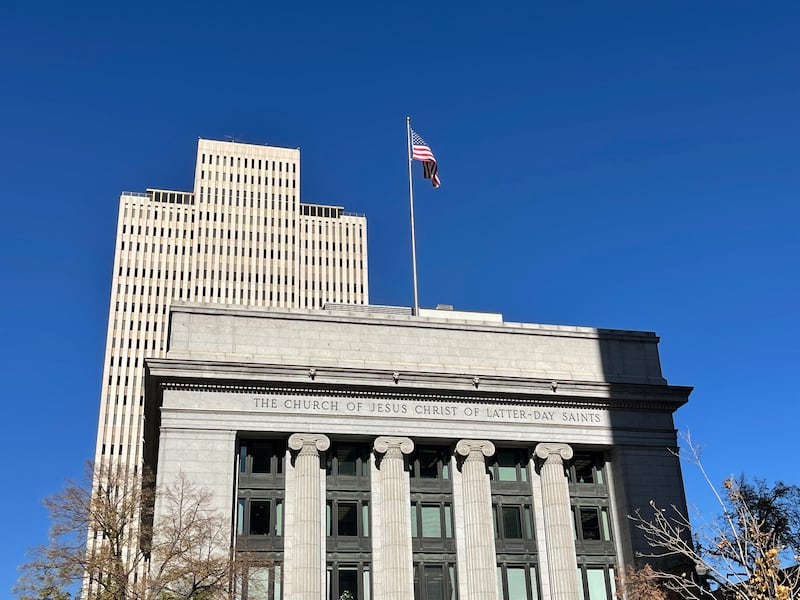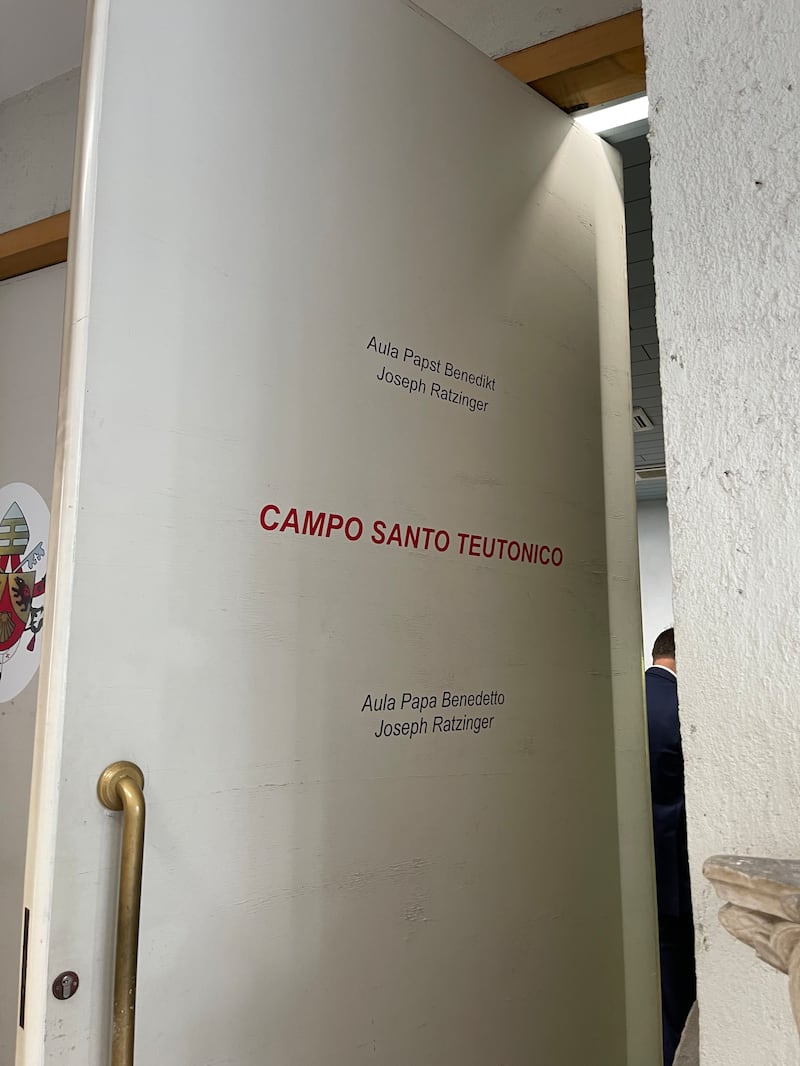This article was first published in the ChurchBeat newsletter. Sign up to receive the newsletter in your inbox each Wednesday night.
A thought-provoking idea that stuck with me after I heard it at the Vatican City in Rome two weeks ago cropped up again Tuesday and Wednesday at a conference at the Church Office Building in Salt Lake City.
The idea is this: New technologies always empower us while they simultaneously weaken us ... and then we try to recapture what we’ve lost.
The most colorful example of this was that few people ran or lifted weights until after cars and automate farm equipment weakened us physically. An entire culture built around sports and exercise grew where it hadn’t existed before.
So, what muscles will begin to atrophy as we adopt artificial intelligence technology?
It’s a great question that was raised compellingly inside Pope Benedict Hall in the Vatican City by a religious leader.
“What happens when AI writes instead of you? It weakens your writing,” he said. “What happens when you have it make decisions for you? It will weaken your ability to make decisions. What happens when we ask it to make moral decisions for us? It will weaken our ability to make moral decisions.”
A spiritual weakening could also follow.
“AI is weakening divine qualities in us,” the man argued. “It threatens God’s image in us.”
I can’t provide the name of the man who raised these issues because the discussion was conducted under Chatham House rules, where ideas are shared without attribution so participants can speak freely.
Everything he said was leading to another, even more compelling question. But let me get to that after showing that other smart people are asking similar questions.
Texas A&M professor and Latter-day Saint writer Valerie Hudson raised the same idea Wednesday at the Organized Intelligence conference right before Elder Gerrit W. Gong of the Quorum of the Twelve Apostles spoke.
“We are building something to give all the steering wheels in the world over to it,” she said of AI, “while simultaneously making our minds less capable of steering anything ever again.”
She named it cognitive atrophy, a real phenomenon captured in scientific studies.
For example, research showed that doctors who used an artificial intelligence to help them read X-rays eventually became less accurate than they were before they used the AI.
“Cognitive offloading dampens those skills,” said Hudson, a writer and editor for the “Oxford Handbook of AI Governance.”
Latter-day Saint author Liz Busby also pointed at writing as a way we build mental fitness.
“You need to go to that mental gym and wrestle with those ideas, getting them into words by yourself on the page,” she said. “You have to make yourself do that when you know there’s a shortcut out there. It’s hard, just like going to the gym.”
That is the perfect set-up for the religious leader’s final question in Rome. We replaced the loss of physical fitness to one technological revolution with gym memberships and jogging, so what lies ahead for us in the next 10, 25 and 50 years?
“What does the culture look like that will try to take back what AI takes from us,” he said, “to strengthen the muscles that technology weakens?”
My recent stories
- FBI confirms Grand Blanc shooter was motivated by his ‘anti-religious beliefs’ against Latter-day Saints (Oct. 31)
- Salt Lake Temple time-lapse video: Crews dismantle huge crane that worked 6 days a week for 4 years (Oct. 31)
About the church
- Elder Neil L. Andersen offered young adults an apostolic blessing that they may obtain a witness of President Dallin H. Oaks as a recently called prophet of God and president of The Church of Jesus Christ of Latter-day Saints. The blessing came during a worldwide devotional broadcast on Sunday.
- The Burley Idaho Temple open house is underway. It runs through Nov. 22.
- The 2026 general conferences will be held April 4-5 and Oct. 3-4, the church announced. See what else the church has scheduled next year here.
What I’m reading
Sarah Jane Weaver wrote about the conversation we should be having about the new temple garment designs.
Behind the scenes



